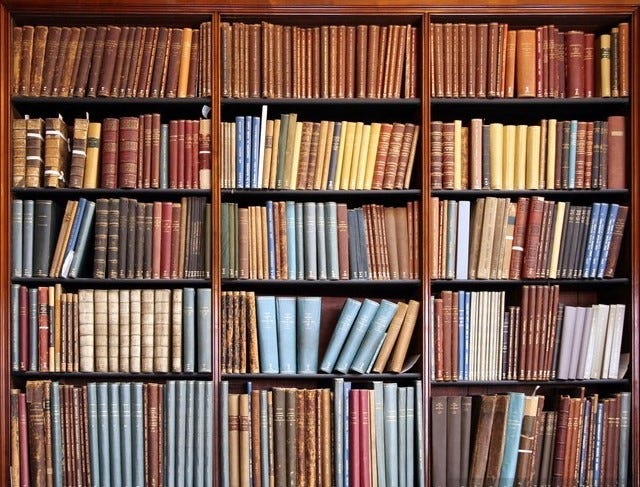This week I bring to you a shorter post. We’ve all been sick in our household (the usual early autumnal cold, which is fine if only you have it, or if only your baby has it, but makes for an exhausting weekend when parents and kids have it simultaneously!) so there has not been much time for writing. I’m going to use this opportunity to just recommend to you a few books (fiction and non-fiction) and articles that I’ve loved reading in the last month or so. Without further ado, here’s a list, in no particular order:
Oliver O’Donovan’s Begotten or Made? (1984). I’ve written about this book in a couple of previous posts. I normally dislike this word (partly because it’s so overused) but O’Donovan’s reflections on how artificial reproductive technologies would eventually erase parenthood proved prophetic. I believe he’s been thoroughly justified in his concerns, especially in his point that, for the sake of the virtue of compassion, we have failed to properly question what the limits of medicine should be.
Chrétien de Troyes’ Erec et Enide (c.1170). This has been the year of discovering a love of medieval literature for me. After enjoying The Pearl and Julian of Norwich’s Revelations of Divine Love, I moved on to Erec et Enide. I had not got on so well with Arthurian romance or chivalric literature in the past, mainly because I found its weirdness hard to get past (dwarves and giants and dragons appear out of nowhere all the time), partly because I disliked the trope of doomed love between a married woman and her unmarried lover. This one is quite different. The protagonists are spouses, and the story recounts their adventures during their early married life. It’s a fascinating text about marriage and the differences between the sexes. It also provides an interesting perspective of male suffering, which counters quite nicely the depiction of female suffering in Julian of Norwich (don’t worry, a post on Julian is on the list already!).
D. L. Sayers’ Have His Carcase (1932). I’m over halfway through my Lord Peter Wimsey marathon at this point. The novel before this one, The Five Red Herrings, was surprisingly disappointing, and the only one I haven’t enjoyed so far (plot too convoluted, too many characters, too clever for its own good but ultimately shallow and unsatisfying). I’m happy to report that Have His Carcase is entirely making up for that. Harriet Vane is back after her first appearance in Strong Poison. She finds a corpse on the beach while on a lonely walk, but here’s the catch: the tide is coming in, and by the time she’s been able to get the police, the body is no longer there. A fascinating premise, and all the charm of the interactions between Harriet and Lord Peter.
Mary Wollstonecraft’s Maria or the Wrongs of Woman Illustrated (1798). A must read for anyone who thinks Wollstonecraft was anti-family or anti-children. This is actually a novel (I suppose what one would call a ‘novel of ideas’), and it’s supposed to reflect in fictional form what Wollstonecraft had laid out in her Vindication of the Rights of Woman. To me, it reads as a desperate attempt to make the case for the inherent goodness of motherhood and childcare even in the most desperate of circumstances. I want to write on this soon, as detractors of Wollstonecraft tend to either ignore or misinterpret this book.
Margarita Mooney Clayton’s article ‘The Art of Virtue and the Virtue of Art’ for Public Discourse (September 18th 2023). A really lovely reflection on the moral dimension of making art. By becoming co-creators with God, Margarita Mooney Clayton argues, we imitate his goodness, and grow in virtue. I won’t say any more. It’s a very, very good article, and short enough to read in the morning with your cup of coffee and - preferably - a fresh, warm pastry.
Louise Perry’s article ‘We Are Repaganizing’ for First Things (October 2023). Not one to read while eating pastries, on the other hand. This is one of the best articles I’ve read in a long time, but it’s not for the weak of heart. I found it gut-wrenching to read as a mother, as no doubt Louise Perry found it gut-wrenching to write as a mother herself. She makes a compelling case that our attitudes towards the physically more vulnerable in our society, i.e. women and children, are now becoming more pagan. If you’re a feminist, Perry argues, you should be very worried about the decline of Christianity, for, she believes, ‘Feminism is not opposed to Christianity: It is its descendant.’ I’ll leave you with that provocative statement, in the hope that you’ll read the article. It’s worth your time.




Kristin Lavransdatter by Sigrid Undset is right on your wavelength. The story of a 14th century woman of good family and her struggles and passions. It's an imposing trilogy, in a recent, one volume translation. It's been on my bookshelf, unread, for too long. I need someone to write about it, and light a fire under me..☺️